
Discover the Hidden Gem of Obock
Obock is a coastal town in Djibouti that offers a unique blend of natural beauty and rich history. As you arrive in Obock, you will be greeted by the azure waters of the Gulf of Tadjoura and the warm hospitality of its people. The town's charming atmosphere and laid-back vibe make it an ideal destination for those looking to escape the hustle and bustle of city life. One of Obock's main attractions is its historical significance. The town was once an important French colonial outpost, and remnants of this era can still be seen today. Visitors can explore the old French fort and other colonial buildings that tell the story of Obock's past. Additionally, the town played a crucial role in the abolition of the slave trade, making it a place of great historical importance. Nature lovers will be delighted by the stunning landscapes surrounding Obock. The nearby Godoria Mangrove Reserve is a must-visit for bird watchers and nature enthusiasts. Here, you can take a boat tour through the mangroves and spot a variety of bird species in their natural habitat. The pristine beaches of Obock are perfect for swimming, snorkeling, and relaxing under the sun. For those interested in local culture, a visit to the Obock Market is a must. The market is a vibrant hub where you can experience the daily life of the locals and shop for traditional crafts, fresh produce, and seafood. Don't forget to try some local delicacies while you're there. Obock is also a gateway to exploring the rest of Djibouti. From here, you can embark on excursions to explore the country's unique landscapes, including the otherworldly Lake Assal and the dramatic landscapes of the Danakil Depression.
Local tips in Obock
- Bring sunscreen and a hat as the sun can be very strong.
- Hire a local guide to learn about the town's history and culture.
- Visit the Godoria Mangrove Reserve early in the morning for the best bird-watching experience.
- Carry cash as ATMs may not be readily available.
- Try the local seafood dishes at the market for an authentic culinary experience.
Discover the Hidden Gem of Obock
Obock is a coastal town in Djibouti that offers a unique blend of natural beauty and rich history. As you arrive in Obock, you will be greeted by the azure waters of the Gulf of Tadjoura and the warm hospitality of its people. The town's charming atmosphere and laid-back vibe make it an ideal destination for those looking to escape the hustle and bustle of city life. One of Obock's main attractions is its historical significance. The town was once an important French colonial outpost, and remnants of this era can still be seen today. Visitors can explore the old French fort and other colonial buildings that tell the story of Obock's past. Additionally, the town played a crucial role in the abolition of the slave trade, making it a place of great historical importance. Nature lovers will be delighted by the stunning landscapes surrounding Obock. The nearby Godoria Mangrove Reserve is a must-visit for bird watchers and nature enthusiasts. Here, you can take a boat tour through the mangroves and spot a variety of bird species in their natural habitat. The pristine beaches of Obock are perfect for swimming, snorkeling, and relaxing under the sun. For those interested in local culture, a visit to the Obock Market is a must. The market is a vibrant hub where you can experience the daily life of the locals and shop for traditional crafts, fresh produce, and seafood. Don't forget to try some local delicacies while you're there. Obock is also a gateway to exploring the rest of Djibouti. From here, you can embark on excursions to explore the country's unique landscapes, including the otherworldly Lake Assal and the dramatic landscapes of the Danakil Depression.
When is the best time to go to Obock?
Iconic landmarks you can’t miss
Bawadi Mall Djibouti
Discover a modern shopping and entertainment experience at Bawadi Mall, Djibouti, with diverse retail, dining, and leisure options for everyone.
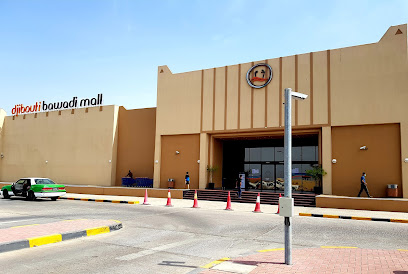
Mosquée Al-Hamoudi
Discover the spiritual heart of Djibouti at Mosquée Al-Hamoudi, a historic mosque with stunning architecture and cultural significance.
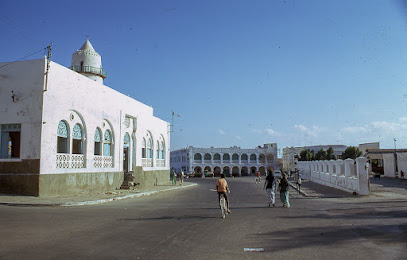
The People's Palace
A symbol of Djibouti's struggle for freedom, The People's Palace is a cultural and governmental hub with stunning waterfront views.
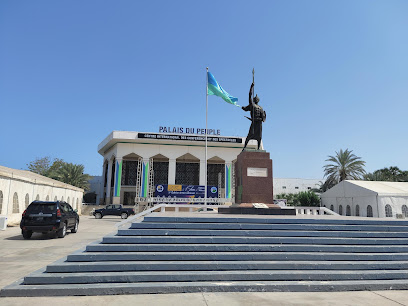
Day Forest National Park
Discover Djibouti's hidden gem: a lush mountain oasis with unique wildlife, scenic trails, and breathtaking views in the Goda Mountains.
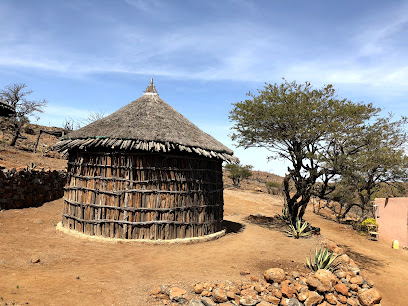
DECAN Refuge
Discover Djibouti's wildlife at DECAN Refuge, a sanctuary for rescued animals and a center for conservation and education.
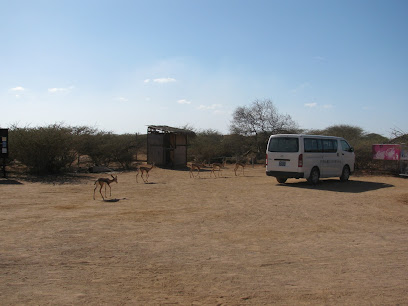
Al Sada Mosque
Discover Al Sada Mosque in Djibouti City, a historic landmark showcasing Islamic architecture and cultural heritage in the vibrant capital city.
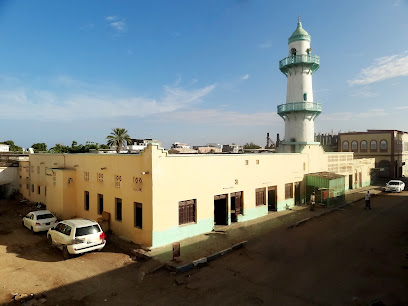
Arta Beach
Escape to Arta Beach in Djibouti: Golden sands, turquoise waters, vibrant marine life, and tranquil serenity await on the Gulf of Tadjoura.
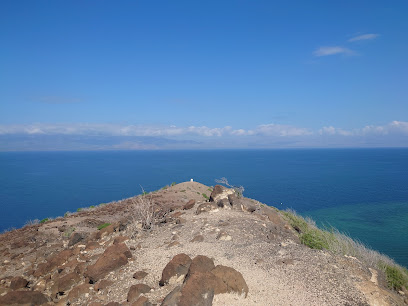
St. Gabriel Ethiopian Orthodox Church, Djibouti
Experience the vibrant traditions of Ethiopian Christianity at St. Gabriel Ethiopian Orthodox Church in the heart of Djibouti City.
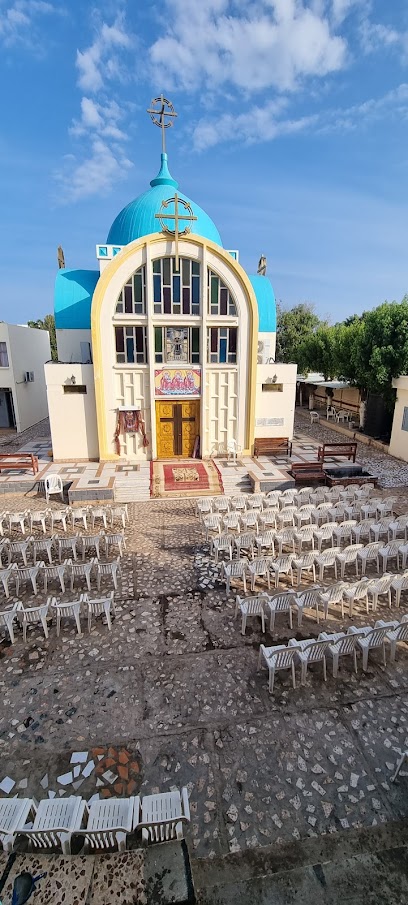
Obock Hotel
Experience comfort and culture at Obock Hotel, your serene base for exploring the historic coastal town of Obock, Djibouti.

Place mahmoud harbi
Experience the vibrant heart of Djibouti City at Place Mahmoud Harbi, where culture, commerce, and community converge in a sensory-rich atmosphere.

Ambado
Discover the serene beauty of Ambado River in Djibouti, a hidden oasis offering tranquility and cultural immersion amidst stunning landscapes.

Asa Koma
Unearth Djibouti's Neolithic past at Asa Koma, an archaeological site revealing early pastoral life and cultural connections in the Horn of Africa.
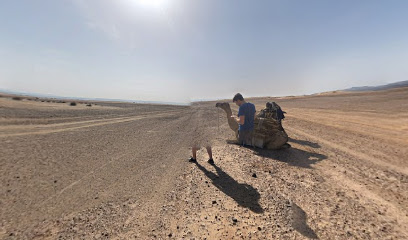
Essential places to dine
Melting Pot
Discover the flavors of Djibouti at Melting Pot - where culinary diversity meets local charm.
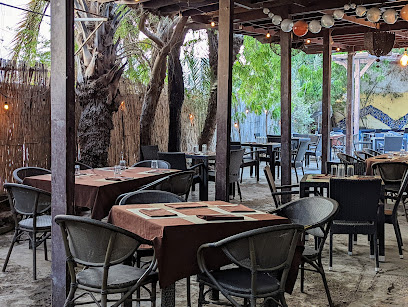
Pizzaiolo Haramous
Discover authentic Italian flavors at Pizzaiolo Haramous in Djibouti – where every meal feels like a celebration.
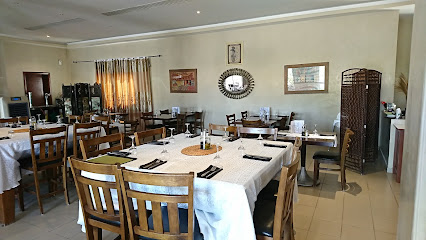
Signatures Restaurant Djibouti
Experience authentic Indian cuisine at Signatures Restaurant in Djibouti - where every dish tells a story.
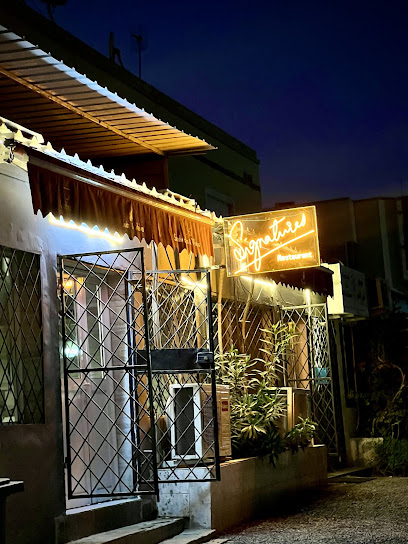
Restaurant La Chaumière
Experience authentic Chinese cuisine at Restaurant La Chaumière in Djibouti - where flavor meets tradition in a delightful setting.
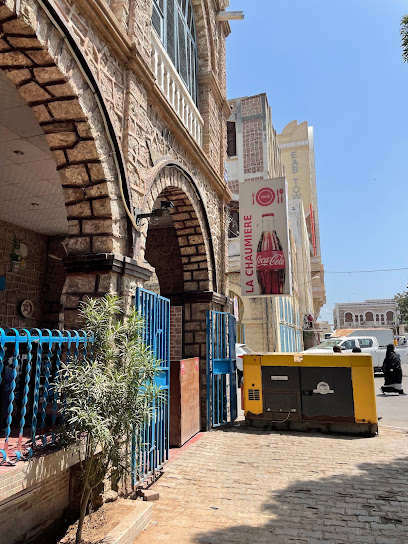
Moonlight Restaurant
Experience authentic Djiboutian flavors at Moonlight Restaurant - where tradition meets taste in a welcoming atmosphere.
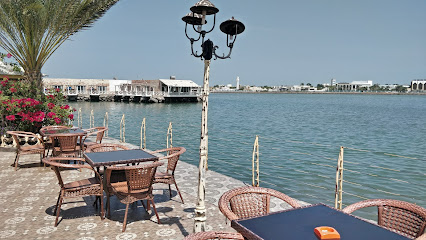
Café de la Gare
Experience the allure of French cuisine at Café de la Gare in Djibouti - where every meal is a delightful journey into taste.
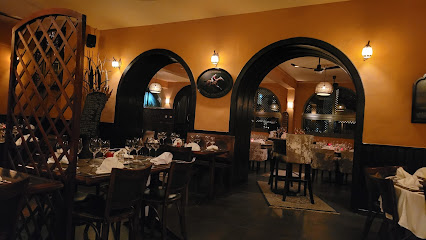
Restaurant La Mer Rouge
Experience exquisite seafood and diverse international flavors at Restaurant La Mer Rouge in Djibouti - where every meal is a celebration.
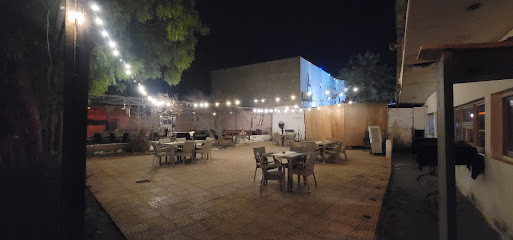
La Pergola
Savor authentic West African cuisine at La Pergola in Djibouti - where rich flavors meet warm hospitality.
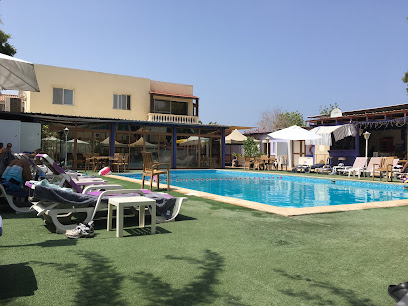
Singh's Restaurant
Experience authentic Indian cuisine at Singh's Restaurant in Djibouti – where vibrant flavors meet warm hospitality.
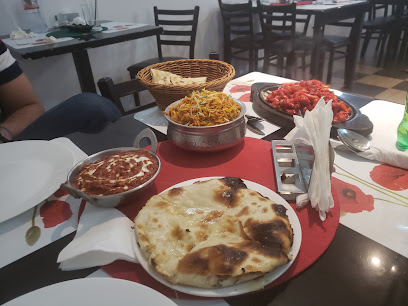
Saba Restaurant
Experience authentic Yemenite cuisine at Saba Restaurant in Djibouti – where every dish tells a story of rich flavors and cultural heritage.
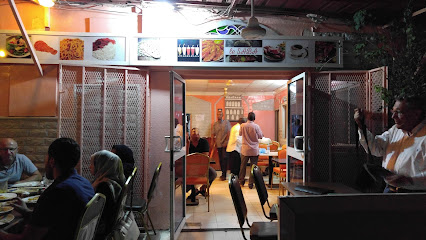
Beach House
Experience exquisite seafood dining at Beach House in Djibouti, where stunning ocean views meet delightful culinary creations.
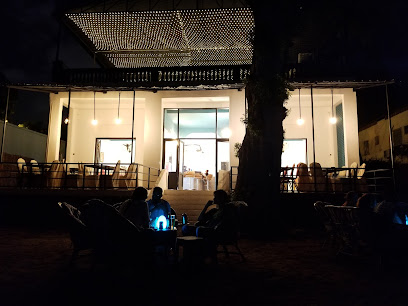
بن ماضي المندي
Discover the rich flavors of Yemenite cuisine at بن ماضي المندي in Djibouti—where tradition meets taste.
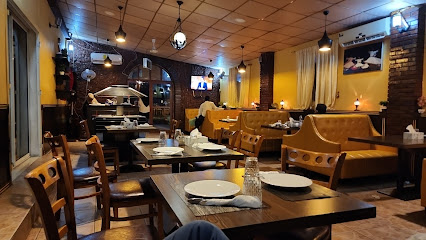
Restaurant NUMBER 1
Discover exquisite flavors at Restaurant NUMBER 1 in Djibouti—where culinary artistry meets local tradition.
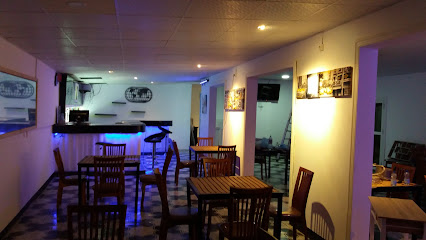
Restaurant Le Longchamp مطبخ بن ماضي
Discover the flavors of Djibouti at Restaurant Le Longchamp – where local cuisine meets international flair in an inviting atmosphere.
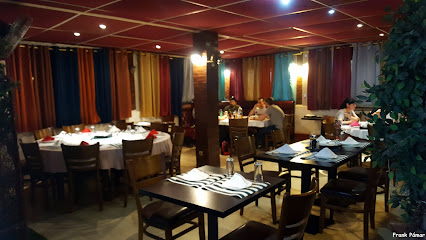
Lac Assal Restaurant
Experience exquisite dining at Lac Assal Restaurant in Djibouti - where local flavors meet breathtaking views.
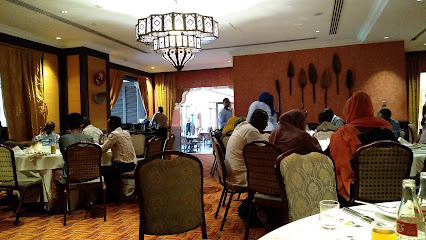
Markets, malls and hidden boutiques
DISCORAMA
Explore DISCORAMA in Djibouti for an unforgettable experience of books, souvenirs, and local charm, perfect for every traveler and book lover.
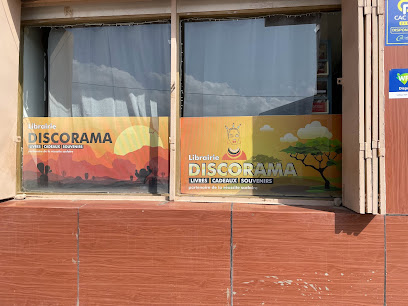
Habone-Deka Djibouti
Explore Habone-Deka Djibouti for a unique shopping experience featuring local fashion, exquisite jewelry, and captivating perfumes in the heart of Djibouti.
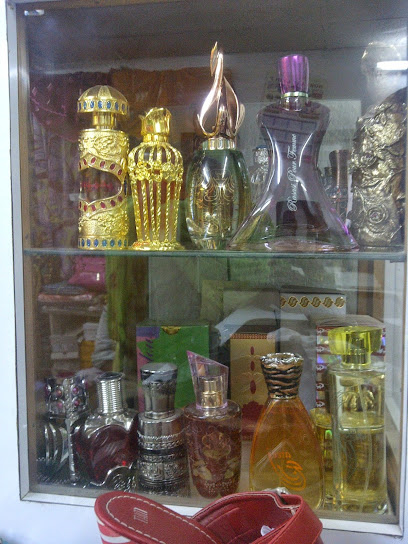
Magasin Chez Farah
Discover unique gifts and local handicrafts at Magasin Chez Farah, the heart of Djibouti's vibrant shopping scene.
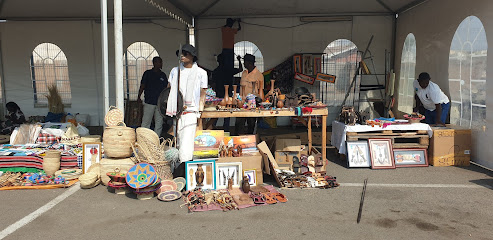
Bait Shops
Discover the vibrant Bait Shops in Djibouti, your ultimate destination for fishing gear and local expertise to enhance your fishing adventures.
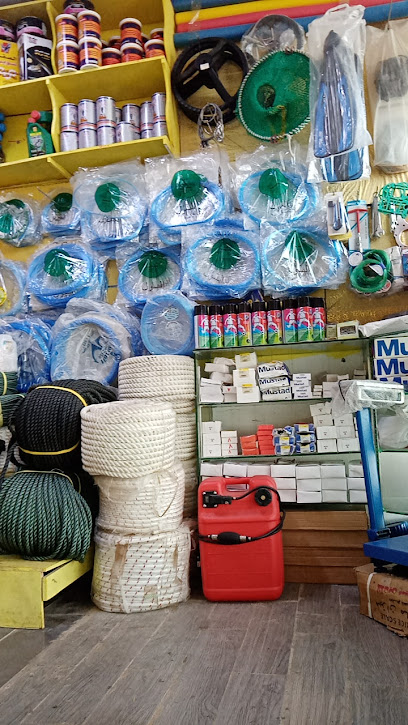
Maison du tabac
Discover local flavors at Maison du Tabac, the grocery store in Djibouti offering authentic snacks and ingredients for a true taste of the region.
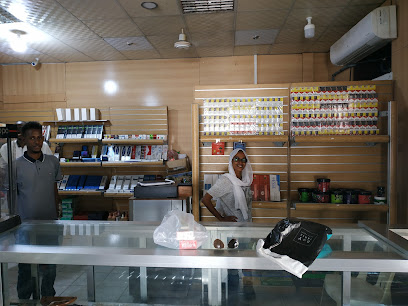
ALMOUKTAR PERFUMES
Discover the enchanting world of scents at Almouktar Perfumes in Djibouti, a unique shopping experience celebrating local and international fragrances.
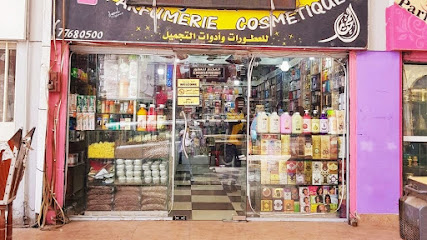
Godoria Shop
Discover the vibrant fashion scene at Godoria Shop in Djibouti, where local culture meets contemporary style in a unique shopping experience.
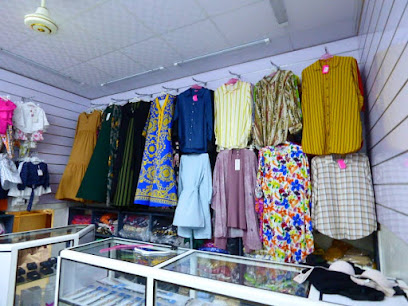
Hardware Store
Explore Djibouti's local hardware store for a unique shopping experience, showcasing home goods and tools reflective of the vibrant community spirit.
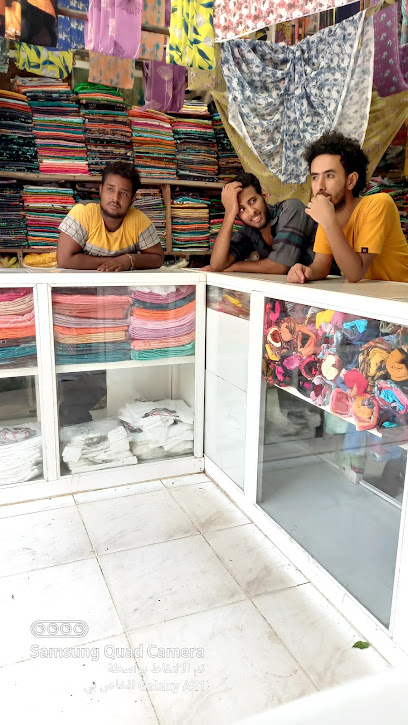
MAGASIN LE BONHEUR PRET A PORTER
Explore local and contemporary fashion at Magasin Le Bonheur Prêt à Porter, a must-visit clothing store in Djibouti for every style seeker.

Antiquités yéménites Yemeni antique تحف تراثية يمنيّه
Explore Yemeni Antiques in Djibouti: A treasure trove of handcrafted artifacts and rich cultural heritage awaits your discovery.
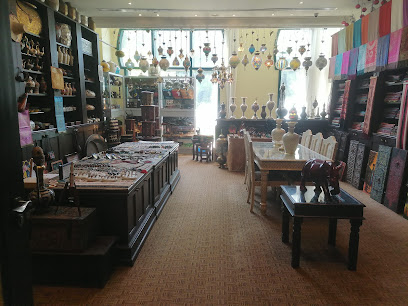
Ali Baba Treasures
Explore Ali Baba Treasures in Djibouti for unique gifts and local crafts that embody the spirit of your travels.
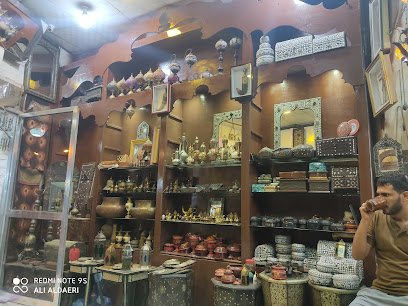
Boutique kadira
Discover unique gifts and local treasures at Boutique Kadira in Arta, Djibouti - a must-visit for every traveler seeking authentic souvenirs.

Ragheb Adel Stores
Experience the authentic flavors of Djibouti at Ragheb Adel Stores, your go-to grocery store for local ingredients and culinary delights.

S&H The Beauty Box Djibouti
Explore the ultimate health and beauty haven in Djibouti, offering premium products and expert services for every traveler.

The one shopping
Explore a captivating collection of gifts and souvenirs at The One Shopping in Djibouti, where every item reflects the rich culture and heritage of the region.

Essential bars & hidden hideouts
11 Degrees North
Discover the lively spirit of Djibouti at 11 Degrees North, a vibrant pub offering a great selection of drinks and a welcoming atmosphere.
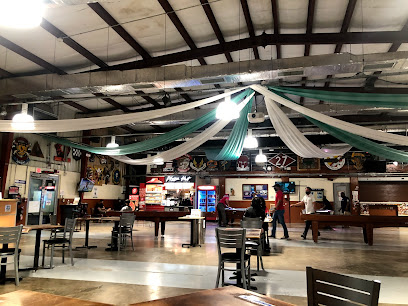
Beach House
Discover the culinary delights of Djibouti at Beach House, where local flavors meet stunning coastal views in a cozy atmosphere.
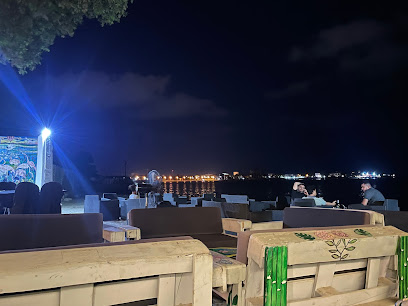
QG Pub & Resto
Discover the best barbecue in Djibouti, where local flavors meet international culinary delights at QG Pub & Resto.
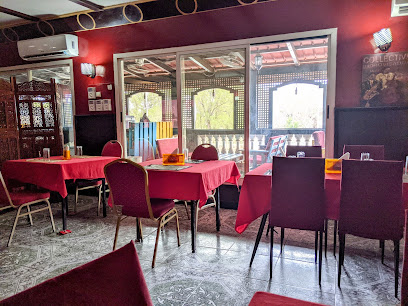
Timeout Restaurant and Sport Bar
Discover the vibrant flavors of Djibouti at Timeout Restaurant and Sport Bar, where local cuisine meets a lively atmosphere.
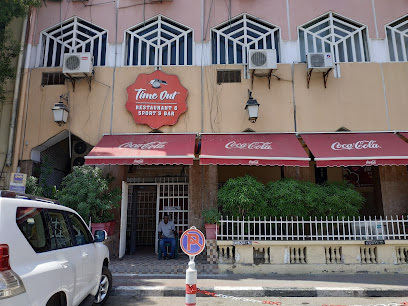
Cantina
Discover Cantina in Djibouti: A lively bar offering a delightful fusion of local drinks, music, and a vibrant social scene.

OKLM café
Discover the vibrant flavors and inviting atmosphere of OKLM Café in Djibouti, where culinary delights meet cultural experience.
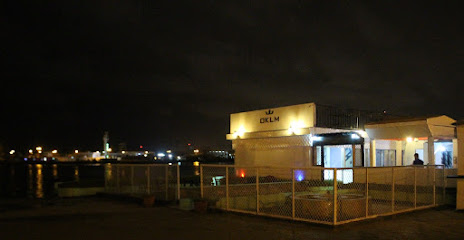
Safari Club Kempinski
Unwind in luxury at Safari Club Kempinski, Djibouti's premier bar offering exquisite drinks and vibrant nightlife in an elegant setting.

Crystal Lounge Sheraton Djibouti
Experience luxury dining at Crystal Lounge Sheraton Djibouti, where exquisite cuisine meets stunning city views in a vibrant atmosphere.
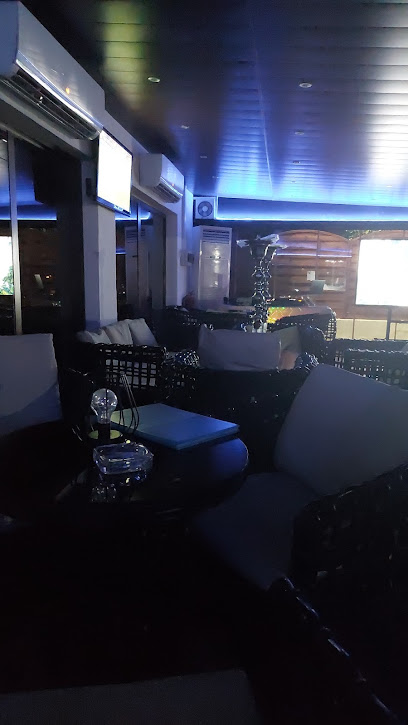
Mystic lounge & restaurant
Discover the diverse culinary delights at Mystic Lounge & Restaurant in Djibouti, where local flavors meet international cuisine.
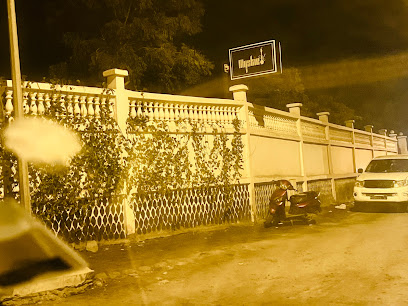
Obock Hotel
Experience the charm of Djibouti at Obock Hotel, your serene retreat in the heart of Obock, where comfort meets adventure.

Pub Palmier Zink
Discover the lively atmosphere of Pub Palmier Zink, the perfect bar in Djibouti for travelers seeking good drinks and great company.
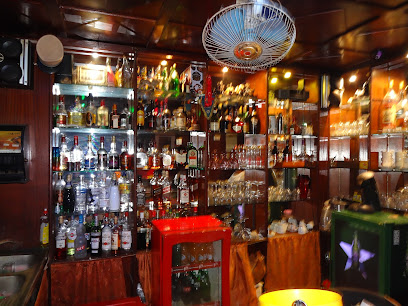
The Goat Locker
Experience the vibrant nightlife of Djibouti at The Goat Locker, a bar where locals and tourists gather for drinks, music, and great company.

B B S Lounge (Bar By Sing's)
Experience the vibrant nightlife of Djibouti at B B S Lounge, an open rooftop bar with stunning views and a delightful drink selection.

Scotch djibouti
Discover the lively atmosphere and vibrant nightlife at Scotch Djibouti, where locals and tourists come together for unforgettable evenings.
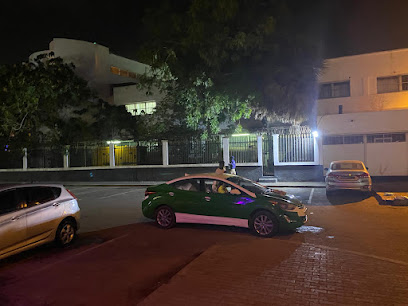
Local Phrases
-
- HelloSalaam
[sah-lahm] - GoodbyeMa'a salama
[mah ah sah-lah-mah] - YesEey
[ee-y] - NoMaya
[mah-yah] - Please/You're welcomeMarhaba
[mar-ha-bah] - Thank youShukran
[shook-rah-n] - Excuse me/SorrySamahani
[sah-mah-hah-nee] - How are you?Kif halek?
[keef-hah-lek] - Fine. And you?Mnayin. W halek?
[m-nah-yin. oo hah-lek] - Do you speak English?Tatakallam al-ingliziya?
[tah-tah-kah-lahm al-een-glee-zee-yah] - I don't understandAna ma fhimt
[ah-nah mah fee-himt]
- HelloSalaam
-
- I'd like to see the menu, pleaseBari an ara al-qayima, min fadlik
[bah-ree ahn ah-rah al-kah-yee-mah, meen fahd-leek] - I don't eat meatAna ma akul lahman
[ah-nah mah ah-kool lah-mahn] - Cheers!Saha!
[sah-hah] - I would like to pay, pleaseBari an adfa, min fadlik
[bah-ree ahn ah-dfah, meen fahd-leek]
- I'd like to see the menu, pleaseBari an ara al-qayima, min fadlik
-
- Help!Musaada!
[moo-sah-dah] - Go away!Ijannab!
[ee-jah-nahb] - Call the Police!Ud'u al-shurta!
[oo-doo al-shoor-tah] - Call a doctor!Ud'u al-tabib!
[oo-doo al-tah-beeb] - I'm lostDhaa'iftu
[dha-ah-eeftoo] - I'm illAna mareed
[ah-nah mah-reed]
- Help!Musaada!
-
- I'd like to buy...Bari an ashtari...
[bah-ree ahn ash-tah-ree] - I'm just lookingAna faqat atadabbar
[ah-nah fah-kat ah-tah-dahb-bahr] - How much is it?Kam thamanuh?
[kahm thah-mah-noo-h] - That's too expensiveHadha ghali jiddan
[hah-thah gha-lee jeed-dahn] - Can you lower the price?Hal yumkinuk tanzil althaman?
[hal yoom-kee-noo-k tahn-zeel al-thah-mahn]
- I'd like to buy...Bari an ashtari...
-
- What time is it?Kam alwaqt?
[kahm al-wah-kt] - It's one o'clockHuwa alwaahid
[hoo-wah al-wah-heed] - Half past (10)Nisf ba'd al-ashara
[neessf bahd al-ah-shah-rah] - MorningSabaah
[sah-bah] - AfternoonDuhur
[doo-hoor] - EveningMasaa
[mah-sah] - YesterdayAms
[ahms] - TodayLyawm
[lyawm] - TomorrowGhadan
[ghah-dahn] - 1Wahid
[wah-heed] - 2Ithnayn
[ith-nah-yin] - 3Thalatha
[thah-lah-thah] - 4Arba'a
[ahr-bah-ah] - 5Khamsa
[kham-sah] - 6Sitta
[siht-tah] - 7Saba'a
[sah-bah-ah] - 8Thamania
[thah-mah-nee-ah] - 9Tis'a
[tees-ah] - 10Ashara
[ah-shah-rah]
- What time is it?Kam alwaqt?
-
- Where's a/the...?Ayna...
[ah-y-nah] - What's the address?Maa huwa al'adresse?
[mah hoo-wah al-ad-drehs] - Can you show me (on the map)?Hal yumkinuk an turiyanii (ala al-khariit)?
[hal yoom-kee-noo-k ahn too-ree-yah-nee (ah-lah al-kah-ree-eet)] - When's the next (bus)?Mata sayakunu alqadam?
[mah-tah sah-yah-koo-noo al-kah-dahm] - A ticket (to ....)Tathkira (ila ...)
[tahth-kee-rah (ee-lah ...)]
- Where's a/the...?Ayna...
History of Obock
-
Obock is one of the oldest towns in Djibouti, with its origins dating back to the mid-19th century. It was established as a French colonial outpost in 1862 when France signed a treaty with the local Afar Sultan, marking the beginning of French influence in the region.
-
Due to its strategic location near the Bab-el-Mandeb Strait, Obock served as a critical point for maritime navigation and trade routes between the Mediterranean Sea and the Indian Ocean. The town became a crucial hub for French colonial expansion and control in the Horn of Africa.
-
From 1884 to 1896, Obock was the capital of French Somaliland. During this period, it saw significant development with the construction of administrative buildings, a port, and other colonial infrastructure. However, the capital was later moved to Djibouti City due to its more favorable location and harbor facilities.
-
The construction of the Franco-Ethiopian Railway in the late 19th century significantly impacted Obock. Although the railway line primarily connected Djibouti City to Addis Ababa, it underscored the importance of the region and facilitated better access and communication between different parts of French Somaliland.
-
During World War II, Obock experienced a decline in its strategic and economic significance. The town was largely overshadowed by the more prominent Djibouti City. After the war, efforts to revitalize Obock were minimal, leading to a period of stagnation.
-
Obock is home to a rich cultural heritage that reflects its diverse history. The town's architecture, traditional markets, and local cuisine offer a glimpse into the fusion of indigenous Afar culture with French colonial influences. Visitors can explore historic sites and enjoy the vibrant local traditions.
-
Today, Obock is a quiet coastal town that serves as a gateway to some of Djibouti's most stunning natural attractions, including the Godoria Mangrove Reserve and the nearby islands. While it may not hold the same strategic importance as in the past, Obock remains a place of historical significance and cultural richness.
Obock Essentials
-
Obock is located in the northern part of Djibouti. The nearest international airport is Djibouti-Ambouli International Airport, situated in the capital city, Djibouti. From the capital, you can take a domestic flight to Obock, though options may be limited. Alternatively, you can travel by road, which typically takes about 4 to 5 hours. The road conditions can vary, so it's recommended to use a 4x4 vehicle. Another option is to take a boat from the port in Djibouti City to Obock, which offers a scenic and potentially faster route, depending on sea conditions.
-
Obock is a small town, and its main attractions are generally within walking distance. For longer distances, local taxis and motorbike taxis (bajaj) are available and relatively inexpensive. Public transportation options such as buses are limited, so renting a vehicle or arranging guided tours may be more convenient for exploring surrounding areas.
-
The official currency in Djibouti is the Djiboutian Franc (DJF). Credit cards are accepted in some hotels and larger establishments, but it's advisable to carry cash, especially for smaller vendors and rural areas. ATMs are limited in Obock, so ensure you have sufficient cash before traveling. Currency exchange services are available in the capital, Djibouti City.
-
Obock is generally a safe destination for tourists, but standard precautions should be taken. Avoid walking alone at night, and be cautious of your surroundings, especially in unfamiliar areas. While crime rates are relatively low, petty theft can occur. It's best to keep your valuables secure and avoid displaying expensive items. The town itself is safe, but always consult local advice when planning to visit remote areas.
-
In case of emergency, dial 17 for police assistance or 18 for medical emergencies. Obock has a local police station and a small medical facility, but for serious medical issues, it may be necessary to travel to Djibouti City. It's recommended to have travel insurance that covers medical emergencies. Pharmacies are available in town for minor health issues and over-the-counter medications.
-
Fashion: Do dress modestly, particularly in rural areas and religious sites. Avoid wearing revealing clothing. Religion: Do respect local customs and religious practices. It's respectful to cover your head when entering mosques. Public Transport: Do be respectful and courteous to fellow passengers. Don’t eat or drink on public transport. Greetings: Do greet people with a handshake or a polite nod. Use formal titles and address people respectfully. Eating & Drinking: Do try local cuisine and accept food offerings graciously. Don’t refuse hospitality, as it is considered impolite.
-
To experience Obock like a local, visit the local markets where you can purchase fresh produce and traditional goods. Engage with locals, who are often friendly and willing to share stories about the town's history and culture. Don’t miss the opportunity to visit the historic lighthouse and the nearby beaches, which offer a glimpse into the daily life of the community. For a unique experience, try to join a local fishing trip or explore the rugged coastline and its natural beauty.
Nearby Cities to Obock
-
Things To Do in Djibouti City
-
Things To Do in Tadjoura
-
Things To Do in Loyada
-
Things To Do in Arta
-
Things To Do in Ali Sabieh
-
Things To Do in Dikhil
-
Things To Do in Aden
-
Things To Do in Ibb
-
Things To Do in Hargeisa
-
Things To Do in Dire Dawa
-
Things To Do in Dhamar
-
Things To Do in Harar
-
Things To Do in Sana'a
-
Things To Do in Mekele
-
Things To Do in Lalibela




